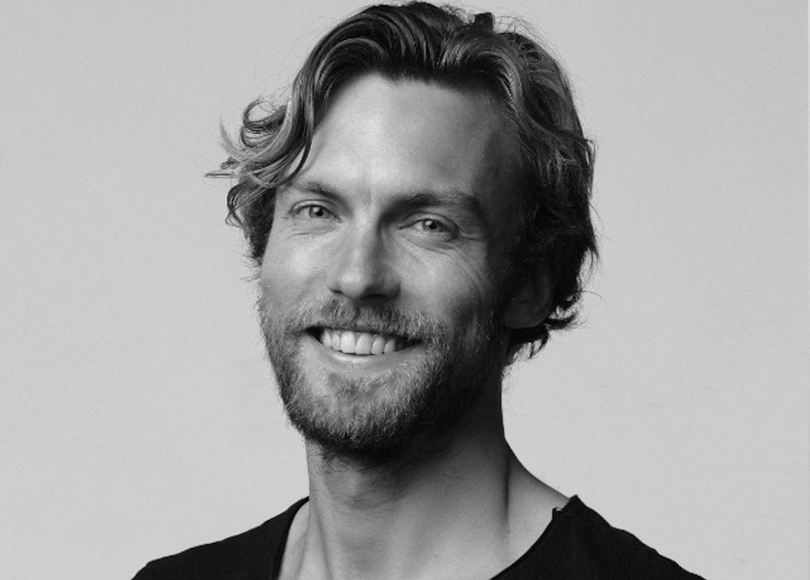It’s a question that has gripped civilisation for centuries, but science, and a greater appreciation of ancient wisdom, are beginning to show where progress can be made when it comes to living longer, reports Tiffanie Darke. So how do we improve longevity?
Can We Live Longer?
There is always a lesson in history. In this case, it’s Greek mythology. Eos, the beautiful goddess of the Dawn, fell in love with the mortal Tithonus. She whisked him off to Ethiopia where the two lived in carnal bliss, eventually bearing two sons. But Eos’s happiness was bittersweet: Tithonus was mortal, and she knew one day she would lose him. Eos went to Zeus and begged him to grant Tithonus eternal life. Taking pity, the supreme god granted her wish, but Eos made a tragic mistake. She forgot to ask for eternal youth. As the years passed, Tithonus withered and degenerated, eventually able just to babble complaints of his old age.
The Human Lifespan: A History
Much progress has been made in the last 100 years into extending the human lifespan. At the turn of the 20th century, life expectancy was just 49 years; by the end of the century that had doubled to 80 years. The main cause of death – infectious disease – has been almost eradicated, to be replaced by degenerative disease. Today, these degenerative diseases – cancer, cardiovascular disease, dementia, diabetes – are often slow burners, dominating the end of life for many years. For while our lives have gotten longer, our ability to remain healthy has actually decreased. Like Tithonus, end of life care is becoming an increasingly pressing issue. Government health data shows an extraordinary 20% of our life is now likely to be spent in poor health. For women it’s even greater, up to 25%. But a shift is going on in the medical community.
Healthcare systems built in the 20th century were all focussed on the detection and treatment of disease. Modern advances now allow us to detect the markers for those diseases before they manifest. The pandemic also showed us that a healthier diet and lifestyle can be taken into our own hands, and the pre-pandemic mindset of ‘pushing on through’ and ‘toughening up’ did not serve us. The age of preventive – or better, proactive – medicine, is upon us. This is being fuelled by two avenues of discovery, Firstly a greater understanding of behaviours and environment, and how this is contributing to our degeneration. And secondly the advance of cutting edge AI. In this field, some believe that the first person to live to 1000 is already alive. This may sound a little daunting, (what would you do with all that time?), but while most of us wouldn’t want to live forever, we’d be happy to improve longevity and make it to a good 100 years.
Understanding Your Biological Age
So where do you begin to improve longevity? Knowledge, as they say, is power, and so understanding what your biological age is, and the speed of your aging, right here, right now, gives you a status report. “A simple DNA test will tell you a lot, detecting pre-disease states before they manifest,” explains Dr Tamsin Lewis, RoseBar Medical Director. You can also test for cholesterol, diabetes, liver function, heart disease, thyroid and more. “A comprehensive blood panel will give us a biological age – with the blood biomarkers we use AI to predict your rate of aging.” Further tests can also show hormone levels, gut health and oxidative stress markers which are related to cancer risk.
Evaluation Testing Assessment Plans & Health Span
You may feel some of this you would rather not know, but through a support system named ETAPS, or Evaluation Testing Assessment Plan, you can implement changes that will directly impact how you feel and function and improve longevity, now and going forward. The plan might include dietary changes, nutrition supplements, hormones for people who are in perimenopause and sleep support. Biohacking technologies are also recommended to improve longevity, due to the tremendous results they are now showing. (Since an Israeli study on Hyperbaric Oxygen Chambers came out two years ago demonstrating its ability to slow down the rate of aging, uptake has been exponential – even department stores are ordering them). The medical anthropologist Alberto Villoldo has this to say about it: “There are three species on the planet that don’t have a death program in their DNA. They are whales, dolphins and humans, and they alone, amongst the 40 million species on the planet, have the concept of grandparents built into their society, and experience the menopause. As humans, we should all consider ourselves part of a grand longevity experiment that nature is running. We get to be part of this experiment today,” he enthuses. “If you don’t take part in the experiment you get to be in the control group. You get to be that big part of the bell curve where 33% die from heart disease and 29% cancer and 30% dementia. If you survive that, you have a 50% risk of diagnosable alzheimers. And as we are all going to be living till we are 100, by the time you’re 90 you have a 75% chance of alzheimers – and that’s not forgetting your car keys, that’s forgetting who your kids are.”
“Your early thirties is actually the best time to start thinking about how to improve longevity, as this is when your body starts aging,” says Dr Lewis. “People need to understand that aging is a continuum. We start to accumulate cellular damage in our late 20s and early 30s, and most people have very little awareness of how their behaviours in their 20s are going to impact them in the long term.” By limiting the damage from environmental stress, whether that’s pollution, time shifts, jet lag, job stress, lack of quality sleep, poor nutrition and poor gut health, can make a huge difference. “Then there’s children,” Dr Lewis continues. “Having children is stressful physiologically and psychologically. Sleep deprivation, changes in hormones, less priority on oneself, less self care all contribute to the aging process.” As people reach middle age, there’s also a tendency to ignore symptoms like ‘mild’ IBS, back pain or migraines. “Putting up with them is not right,” says Dr. Lewis. “What you need to do is tease it apart, find the root cause and look at how to change your day to day so you feel and function better now and protect your health for the future.”
Longevity & Nutrition
Almost everyone agrees, the best place to start to improve longevity is nutrition. The agricultural economist Barry Popkin published a paper on ‘Nutrition Transition’ in 1994, which correlated the rise in modern degenerative disease in populations that had switched to an ultra processed diet. Heart disease, cancer and diabetes seem to increase exponentially once people start eating ‘modern’. In so-called blue zone geographies, where populations have an above average lifespan, a diet of whole foods is a common denominator. That and an active (read non-screen) lifestyle. By understanding the ways modern lifestyle and diet are damaging, the design of specific antidotes have become possible. Specifically, pharmaco-nutritional tools such as supplements and adaptogens that can neutralise inflammatory stress.
Cell Inflammation & Longevity
Cell inflammation is the marker of the onset of these diseases: unhealthy cells show their condition by becoming inflamed. This happens when they are under attack, due to illness, lack of sleep, bad diet or stress. ‘Inflammaging ‘ is an increasingly common term correlating cell inflammation to the process of aging. We can prevent inflammation by supporting the immune system and reducing stress – getting out of ‘fight or flight’ should be a priority. This hyper vigilant state is where our immune system starts tagging things in our environment and producing inflammatory molecules that cause cell damage and oxidative stress.
Bringing down your stress levels to minimise cell inflammation is one reason to embrace the spiritual approach to age deceleration and improve longevity. By spirituality, no one is talking about worship, or belief. That’s a personal choice. Instead, it denotes a means to tranquillity and inner peace. Blue zone studies show that in those parts of the world where people live longest, common themes in these societies are a strong sense of purpose, the ability to take joy in life and an understanding and appreciation of the universe we live in. Anna Bjurstam, Six Senses Wellness Director is very clear on this: “Understanding your inner self and sense of purpose is key to life extension,” she says. “Learning to feel at one with yourself, to get out of your head and come into your body is not only a joyful experience, it is a key component of self care. You can achieve this with breathwork, energy medicine and meditation. Do this in a beautiful environment where you feel safe and held, then you can effectively release your mental and emotional blockages.”
Switching to an environment rooted in nature, taking time out from the day to day stresses and spending some time with yourself, is where RoseBar comes in. Set in one of the most beautiful places around the world, it is a unique synthesis of science, spirituality and preventive medicine. It recognises that no individual methodology is going to get you to your millennial birthday (and, let’s face it, who would want that?), but with a better understanding of the harmful effects of modern lifestyle there’s much we can do to optimise our later life, and in so doing extend it.


